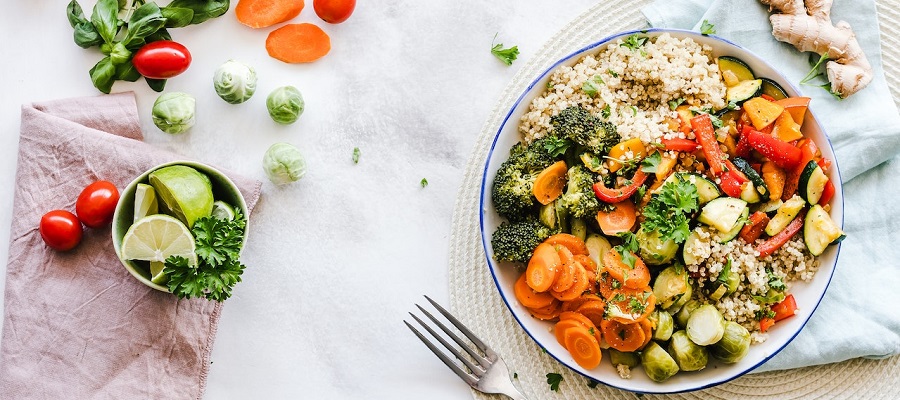Organic vegetables are vegetables that are grown using methods that prioritize the use of natural inputs and techniques, rather than synthetic pesticides, herbicides, and fertilizers. Organic farming practices aim to promote the health and well-being of the soil, plants, and animals, and to minimize the negative impact on the environment.
To be certified as organic, farms and producers must meet certain standards and guidelines, which can vary by country. These standards often require the use of natural inputs and techniques, such as composting, crop rotation, and the use of natural pest control methods. Organic farms may also be required to meet certain standards for animal welfare, including the use of organic feed and the provision of outdoor access for animals.
Organic vegetables are often perceived as being healthier and more environmentally friendly than conventionally grown vegetables, although there is limited scientific evidence to support this belief. However, many people choose to purchase organic vegetables because they believe that they are grown in a more sustainable and ethical manner.
Overall, organic vegetables are vegetables that are grown using methods that prioritize the use of natural inputs and techniques, and that meet certain standards and guidelines for organic farming. They are often perceived as being healthier and more environmentally friendly than conventionally grown vegetables.
How bad are non-organic vegetables?
It is not accurate to say that non-organic vegetables are "bad" in any general sense. Non-organic vegetables are simply vegetables that are grown using methods that may include the use of synthetic pesticides, herbicides, and fertilizers.
While non-organic farming practices may differ from organic farming practices, non-organic vegetables can still be a nutritious and important part of a healthy diet. Many non-organic vegetables are grown using techniques that prioritize the health and well-being of the soil, plants, and animals, and that minimize the negative impact on the environment.
That being said, some people choose to purchase organic vegetables because they believe that they are grown in a more sustainable and ethical manner, or because they believe that they may be healthier due to the absence of synthetic pesticides and fertilizers. However, there is limited scientific evidence to support these beliefs, and it is important to note that both organic and non-organic vegetables can be a nutritious and important part of a healthy diet.
Overall, it is not accurate to say that non-organic vegetables are "bad," but some people may choose to purchase organic vegetables for personal or environmental reasons.
Is the price difference between organic and non-organic vegetables much?
The price difference between organic and non-organic vegetables can vary depending on a variety of factors, including the type of vegetable, where it is grown, and where it is sold. In general, organic vegetables tend to be more expensive than non-organic vegetables due to the additional costs associated with organic farming practices, such as the use of natural inputs and techniques, and the certification process.
However, the price difference between organic and non-organic vegetables can vary significantly depending on the specific vegetable and the location. Some organic vegetables may be only slightly more expensive than their non-organic counterparts, while others may be significantly more expensive.
It is worth noting that the price difference between organic and non-organic vegetables can also vary depending on the season and the availability of the vegetables. For example, organic vegetables that are in season and grown locally may be less expensive than organic vegetables that are out of season or imported from other countries.
Overall, the price difference between organic and non-organic vegetables can vary, but organic vegetables are often more expensive than non-organic vegetables due to the additional costs associated with organic farming practices.
When does eating organic vegetables become necessary?
There is no specific time when it becomes necessary to eat organic vegetables, as the decision to purchase organic vegetables is often a personal one based on individual values and priorities. Some people choose to purchase organic vegetables because they believe that they are grown in a more sustainable and ethical manner, or because they believe that they may be healthier due to the absence of synthetic pesticides and fertilizers. However, there is limited scientific evidence to support these beliefs, and both organic and non-organic vegetables can be a nutritious and important part of a healthy diet.
It is important to note that the nutritional content of vegetables, whether organic or non-organic, can vary depending on a variety of factors, including the type of vegetable, where it is grown, and how it is prepared. To ensure that you are getting a wide range of nutrients, it is important to eat a variety of vegetables, including both organic and non-organic varieties.
Overall, the decision to eat organic vegetables is a personal one that depends on individual values and priorities. It is important to consider your own personal circumstances and make the decision that is best for you.


